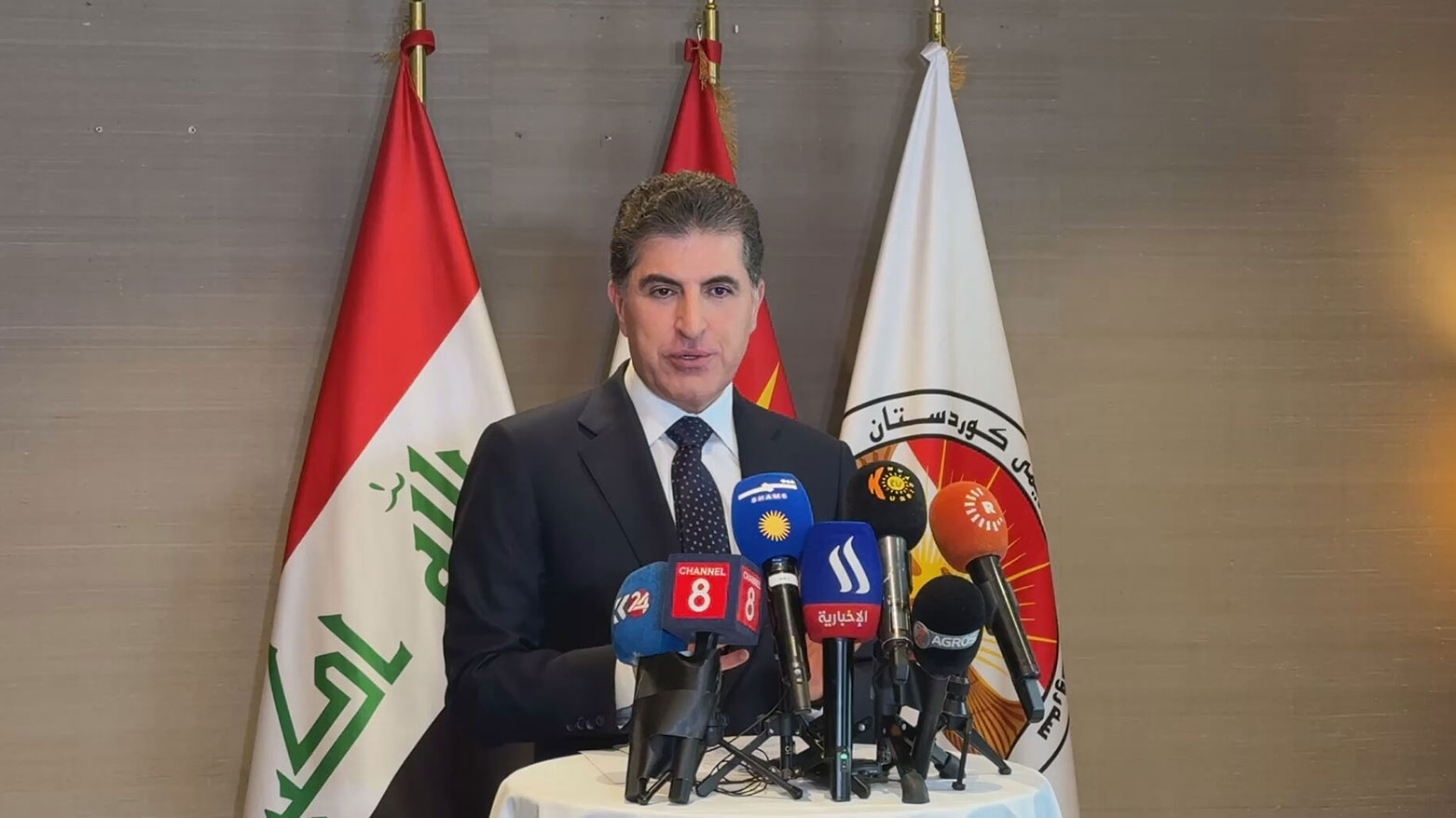Syria’s Future Lies in Dialogue between Damascus And Kurds
President Barzani emphasized that federalism as a solution is complex and cannot be replicated identically across different regions.

ERBIL (Kurdistan24) – Kurdistan Region President Nechirvan Barzani, speaking at a press conference on Sunday following his participation in the Munich Security Conference (MSC), addressed key regional issues, including the situation in Syria, relations with Iran, and the prospect of a visit to Syrian Kurdistan.
Federalism Is Not a One-Size-Fits-All Solution
President Barzani emphasized that federalism as a solution is complex and cannot be replicated identically across different regions.
“Every place has its own distinct characteristics. You cannot copy the Kurdistan Region’s model in Iraq and apply it to Kurdish regions in Syria. Syria’s geography is different, and so are the demographics,” Barzani explained.
“What matters is not the form of governance but ensuring inclusive representation and respect for all communities in Syria.”
He stressed that peaceful coexistence among Syria’s diverse groups should be the priority, rather than insisting on a specific governance model.
“The governance system in Syria should be decided through discussions and dialogue with officials in Damascus,” he said.
“I urge our Kurdish brothers in Syria to engage with Damascus—not as outsiders, but as rightful citizens of their own country. Syria is their home, Damascus is their capital, and they should be part of shaping its future.”
On a Possible Visit to Syria
Barzani expressed a personal connection to Syria and a desire to visit Kurdish regions like Qamishli and Afrin in the future.
“I miss Syria. We used to visit frequently in the past—traveling to Qamishli, then Aleppo, and Damascus. I would love to return and visit our people in Qamishli and Afrin once again,” he said.
On Relations with Iran: A Policy of Non-Interference
Regarding ties with Iran, Barzani reaffirmed the Kurdistan Region’s strong relationship with Tehran, particularly in economic and diplomatic spheres.
“Our relations with Iran are very good. Iran is our neighbor, and our economic and diplomatic ties continue to grow,” he stated.
However, he underscored that the Kurdistan Region does not interfere in Iran’s internal affairs, as it is a sovereign matter governed by international law.
“We can engage in discussions on specific topics, but we do not interfere in Iran’s internal affairs. This is our official policy, and we expect the same principle of non-interference to be upheld in Kurdistan’s internal affairs as well,” he concluded.
The Kurdistan Region’s policy toward Iran, Barzani noted, is based on mutual respect and cooperation, ensuring stability and constructive engagement between the two sides.